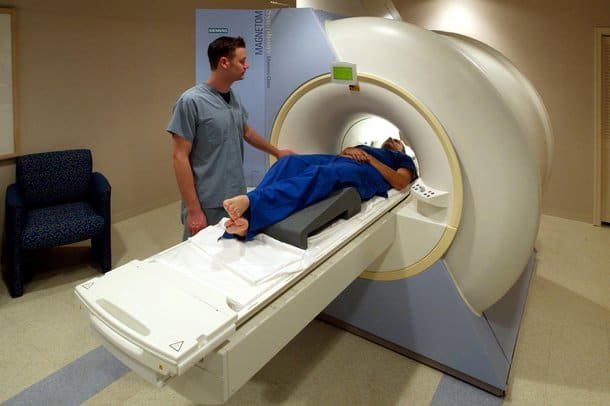
Early Signs Of Alzheimer’s Disease Besides Memory Loss

Believe it or not, Alzheimer’s disease is the sixth leading cause of death in the United States. The common misconception about this disease is that only old people can develop this, when it’s actually possible for the younger generation too. Most people develop this disease when they reach 70 years. An early onset (40-50 years old) of this disease can be brought by many factors like diet, accidents, and unhealthy lifestyle.
There are early signs that will tell us we’re becoming a candidate for Alzheimer’s disease! These early signs do not involve memory loss – the common symptom that most of us know of.
Vision

Alzheimer’s can affect our visual processing
Most people who come to a certain age will experience degradation of eyesight. For people who already have a blurry vision at a younger age, go to a doctor and have it checked. If the results say that the eyes are normal and don’t have some kind of condition, then it might be because of our brain. Losing good eyesight without any eye problems can be linked to a visual processing problem. The part of the brain that is responsible for this is slowly deteriorating, making it a possible sign of Alzheimer’s and Dementia-related diseases.
Depression
Just like Alzheimer’s, depression is a mental illness that is somehow age-specific. If a person never experienced any clinical depression in his/her earlier life, only to have it during 50’s, then it can be a sign of early Alzheimer’s. Not all people who have depression will have Alzheimer’s, but studies show that it’s three times more likely. This is for the reason that a depressed brain can secrete hormones that will lead to the development of this disease. It’s better to schedule an appointment with professionals to help assess and treat depression.
Apathy

People with early sign of Alzheimer’s will stop doing their regular grooming habits like cutting their hair
A person with apathy can exhibit many lifestyle changes. They have the tendencies to stop exercising good hygiene, withdraw from social activities, and abandon their hobbies. Apathy can be brought by the changes in brain structure, that’s why they also change their behaviors. Family members and close friends should be able to detect these changes since its deviant from the person’s behavior.
Unusual Consumption of Food
People with early onset of Alzheimer’s disease will tend to have drastic weight loss because of metabolic change. The metabolism will change because the structure of the brain changes. They also have a tendency to get hungry very fast but still won’t be able to gain weight. It is also reported that people with this early sign will eat unusual and inedible things like paper.
They won’t be able to Recognize Sarcasm
There are people who can’t immediately process sarcasm, they have to be explicitly told that it was a sarcastic remark. It is normal to miss some sarcastic comments but not having to recognize it frequently can be a sign of Alzheimer’s. In a recent study conducted by Katherine Rankin of the University of California, people with Alzheimer’s and frontotemporal diseases are more likely not to recognize sarcasm. People with Alzheimer’s have damage in their hippocampus, the part of the brain where a short memory is stored, that is why they are forgetful. This is also the part of the brain that is responsible for sorting out sarcastic comments.

Schedule an MRI appointment to make sure the condition of your brain
Falling and Tripping
Yes, you heard it right, falling and tripping can be linked to an early sign of Alzheimer’s. The brain is the computer of our bodies, all movements and processes are managed by the brain. Since Alzheimer’s is a disease that attacks the brain, a lot of basic functions will become affected. A brain scan of 125 adults who frequently fell or trip has higher risks of developing the disease sooner. It’s best to consult a doctor if you have already fallen or tripped for an unusual amount of times.
Bottomline
Just because you will experience some of these things it doesn’t mean that you are already a candidate for Alzheimer’s. Some people can still experience these and will not develop such diseases. It’s always best to consult a physician and professionals when some of these symptoms arise in a very deviant frequency and onset.
More in Mental Health
-
A Comprehensive Guide on How to Heal Anxious Attachment Style
If you often find yourself seeking constant reassurance from your partner or requiring endless validation to feel secure, you may be...
June 1, 2024 -
Why Is My Skin Peeling on My Face After Skincare? Here’s What You Need to Know
Experiencing skin peeling on your face after implementing a skincare routine can be perplexing and frustrating. This phenomenon, where the skin...
May 23, 2024 -
What Is a Mental Edge, and How Do You Get It?
Have you ever wondered why some individuals seem unshakably confident under intense pressure, finding a way to excel when it matters...
May 15, 2024 -
When to Worry About Varicose Veins? Here’s What You Need to Know
Varicose veins are a common issue, affecting about 20% of adults. They’re usually seen as unsightly blemishes on the legs but...
May 12, 2024 -
Why Is Discipline Important: The Ultimate Guide to the Importance of Discipline
Discipline is undoubtedly one of life’s most crucial character traits. It shapes how we approach tasks, manage our time, and...
May 3, 2024 -
Have I Fallen Out of Love or Am I Depressed? Everything You Need to Know
Have I fallen out of love or am I depressed? You’re not alone in this query. In the diversity of human...
April 26, 2024 -
What Does Lung Cancer Breath Smell Like?
Cancer is one of the most formidable diseases of our time, characterized by the uncontrolled growth of cells that invade and...
April 20, 2024 -
Making Major Life Changes? Discover 5 Crucial Things Before You Leap
Life changes are a pivotal part of our journey, marking the transition from one phase of life to another. These changes,...
April 13, 2024 -
The Surprising Benefits of Being Bored at Work
Are you bored at work? We’ve all been there, staring blankly at our computer screens, feeling an overwhelming urge to be...
April 6, 2024















You must be logged in to post a comment Login